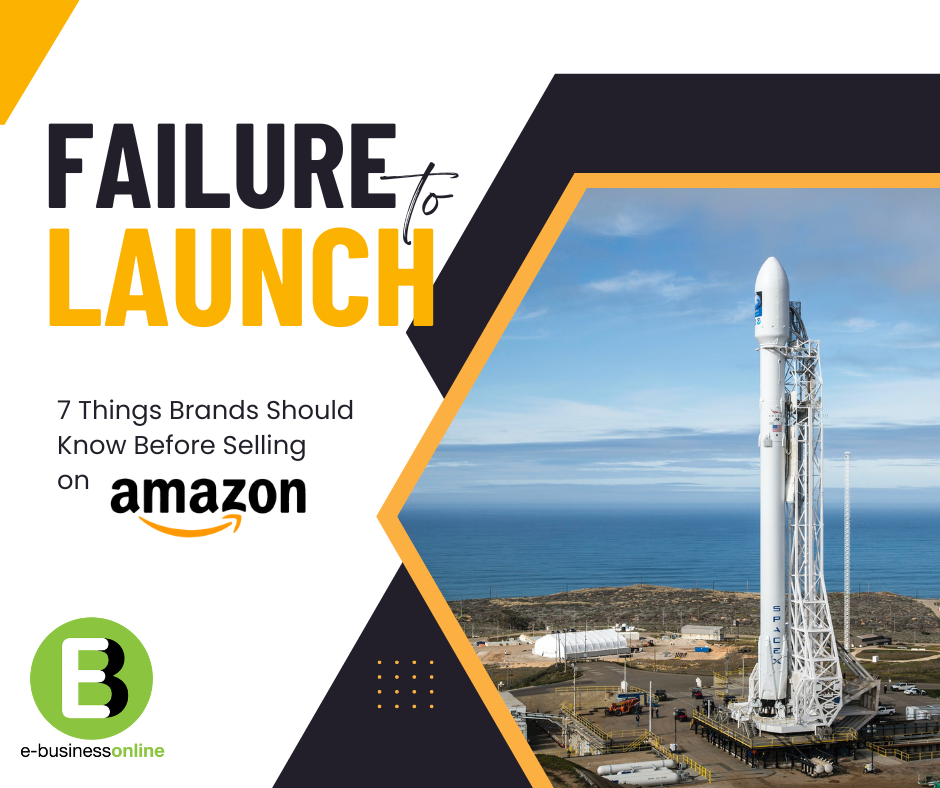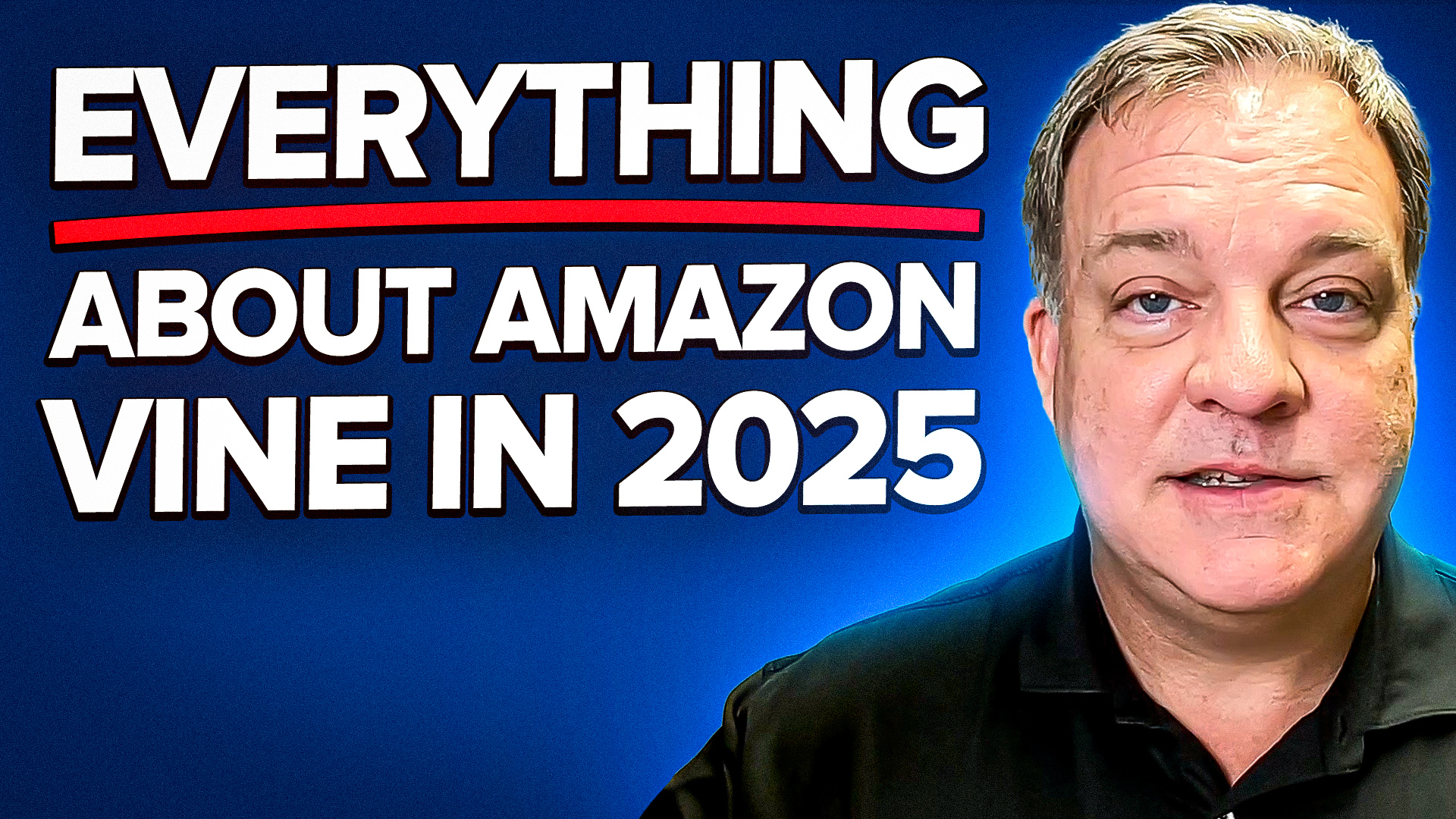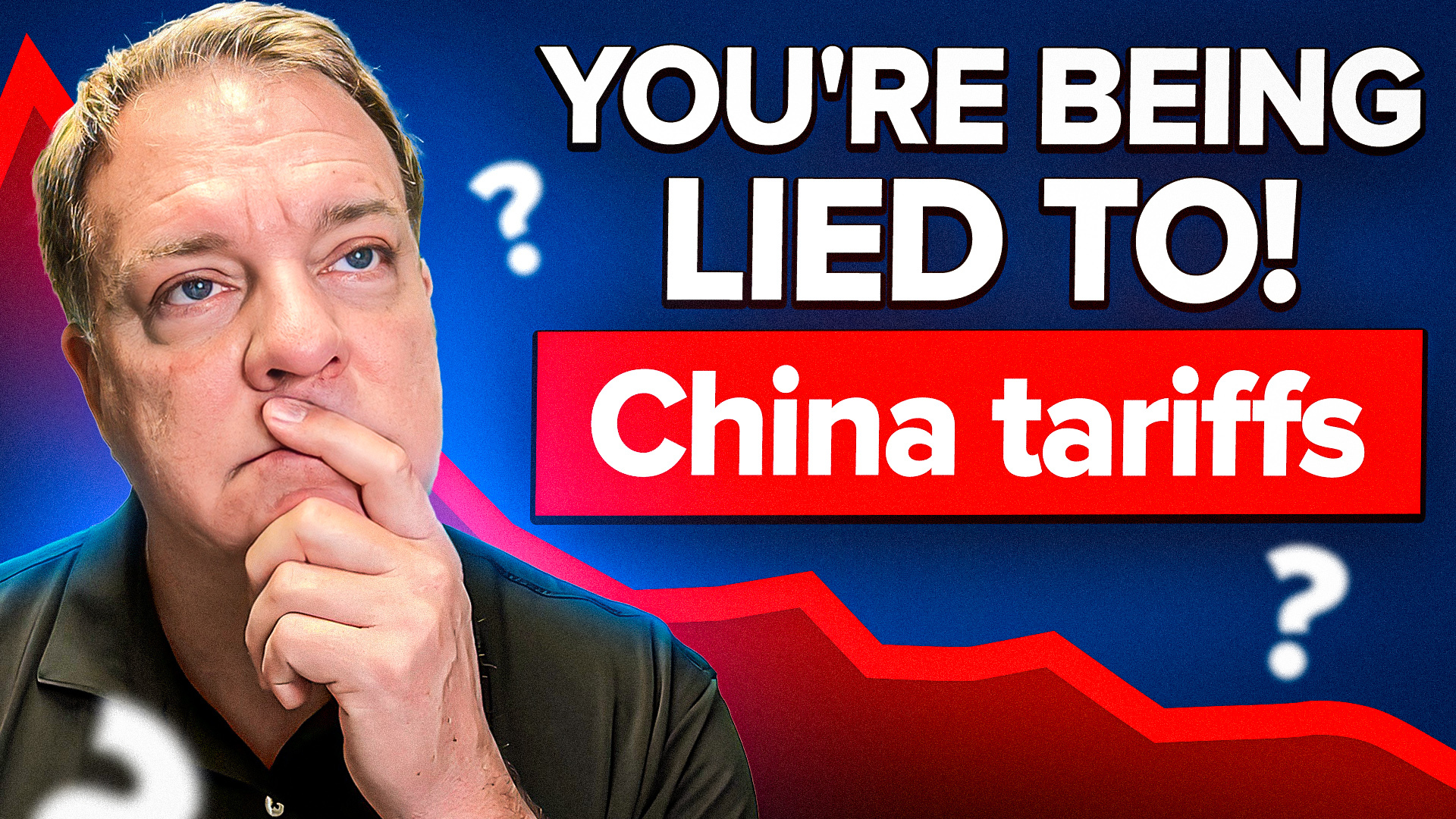Failure to Launch – 7 Things Brands Should Consider Before Selling on Amazon
One of the most exciting parts of running an e-commerce agency is getting new clients. New business is life, it’s exciting, and launching a brand on Amazon (or scaling an existing one) and other e-commerce channels is a huge rush of activity for both the agency and the brand.
Nothing is worse, however, than a failed launch and the disappointment that surrounds it. No brand wants to waste their time and money on a failed launch and any agency worth their cost will be really disappointed as well.
Here are a few things that an agency should be asking brand owners as well as some reasonable expectations that can prevent the disheartening sound of …
“3-2-1- Abort”!!!

#1: Are you committed to utilizing your brand’s email list, marketing, social media, and other resources to drive traffic and awareness to your Amazon listings?
I’ve worked with many brands who want to succeed on Amazon, but don’t want to give up the “margin” they have on their Shopify (or other D2C) platform by sending their customers to Amazon. In their mind, they’d rather those customers buy off their website and save the Amazon commission. What they don’t realize is that their customer list is the easiest (and cheapest) way to successfully launch their brand and rank their products quickly.

#2: Do you have enough inventory to sustain a focused launch?
It’s very difficult to launch with a very small quantity. A dozen units isn’t enough. The absolute worst thing you can do is run out of stock during your launch. That’s like your rocket running out of fuel before the secondary boosters kick in. You’ll not make it into orbit and you’ll plummet back to earth, crash, and burn.
You need to make sure that the brand owners have sufficient inventory to offer discounts, Vine reviews (you can allocate up to 30 units for Vine users, and I recommend offering the max), and other inventory that will sell quickly when you use your warm market list. (see #1). These sales will get you ranked quickly during Amazon’s honeymoon phase and selling out of inventory will sabotage all of that.

#3: What are your margins?
Part of almost any successful launch that gets you off the pad, through the atmosphere, and into a sustained orbit (keywords ranked and crushing organic sales) is PPC. There are plenty of gurus out there boasting crazy low PPC ACOS but on average, your ACOS (Advertising Cost of Sales) will be around 25-35%. During launch, with no organic ranking it could be much higher. If you are coming into Amazon with a product that nets you 15% profit after Amazon fees (commission, FBA fees, etc), you aren’t going to pull it off without some significant losses. Sure, there are always outliers, but good margins are critical.

#4: Are you prepared to invest into this for at least 6-months without seeing a significant return?
I tell my clients that I want to see them profitable within 6 months. I’d like to see that happening much sooner and in most cases, it does happen sooner. However, depending on market share, competition, PPC costs, and other external factors, it could take as much as 6 months before you really start to see profits.
Launching a brand on Amazon is a marathon, not a sprint. It’s best that brand owners and potential clients understand this before they get 3 months into your agreement and want out because they are “spending too much money”.

#5: Will you, or a member of your team, be able to be focused on the launch process and provide any materials needed within 1-2 business days?
Brand owners who choose to work with an agency need to understand that this is a two-way relationship. Even with a full-service agency, there are always going to be assets needed, photography, brand information, background details, weights, dimensions, special restriction information, etc. Brand managers don’t magically know this information and rely on a timely, quick response from brand owners to keep the launch process moving.

#6: Are you able to divorce yourself from the emotional attachment to your brand?
This is huge. Far too many times, brand owners are so emotionally attached to their brand and products that they are not able to see the flaws that others see. If your product constantly gets 1-star reviews, you cannot blame it on the “dumb Amazon customer”. You have to listen, change, and adapt. Are you able to be humble and listen to outside advice? Are you able to hear feedback from people who are not emotionally attached to your brand and embrace it?

#7: Do you have the assets needed?
This includes inventory but also includes things like high resolution images of your product, high resolution images of your brand’s logo. Is your brand trademarked? If not, are you prepared to invest $1-2K into that process? Are you able to sustain the costs of PPC marketing for a few months until those ads are making your product profitable? Every brand owner should have a reasonable expectation of what the PPC/Marketing budget should be before committing to an agency or a launch. Not having these things in place causes delays, and delays wreak havoc on the flywheel effect of a successful launch.
Conclusion:
In summary, these are questions that I think every agency should be asking their clients prior to asking them for a check. It’s far better to have them decide they aren’t quite ready yet than to take their money and hit delays and roadblocks. As a full service agency, it’s great to offer as many solutions to some of these friction points as possible but setting some realistic expectations will save everyone some frustration in the future.
I’d love to hear your thoughts. What are we missing here?






